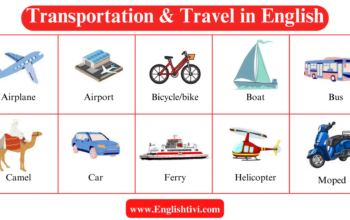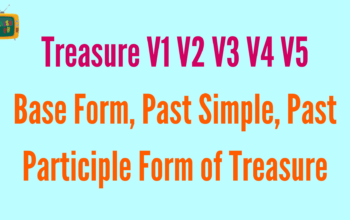Leer V1 V2 V3 V4 V5 is one of the verbs that are used very commonly in English tests as well as in everyday communication. Also, because it’s an irregular verb, leer doesn’t follow the regular rule. The verb “leer” has five different forms: base form, past simple, past participle form, present perfect, and present perfect participle. So what is leer‘s past? How do conjugate verbs with leer verbs?
⏩ Sign Up to Get Bonus
Let’s find out with English tivi in the article below.
See more at: Verbs
Leer of Definition and Meaning
Leer is a word for the act of looking at someone or something with an intent to sexually arouse.
V1 V2 V3 V4 V5 Form of Leer
| Base Form (V1) | leer |
| Past Form (V2) | leered |
| Past Participle Form (V3) | leered |
| s / es/ es (V4) | leers |
| ‘ing’ form (V5) | leering |
Leer of Past Simple V2
The verb Leer is also employed in its V2 form as “leered”’. It is used to indicate the past tense in sentences.
Leer of Past Participle V3
The V3 form is identical to the V2 form. The V3 form is “leered”. Leered is used in the past or present perfect tense.
+ In the present perfect tense, we use the word V1 as ‘have + leered‘ or ‘has + leered'.
- I, you, and we are used as ‘have + leered‘.
- ‘has + leered' is used for he, she, and it.
+ If you need to use the past perfect tense, use ‘had + leered‘ regardless of the subject.
You might also like: ALL the English Grammar Basics You Need
Conjugation of Leer V1 V2 V3 V4 V5
| Conjugation table: Leer | |||
| Number | Singular | ||
| Present Simple of leer | I | You | She/He/It |
| leer | leer | leers | |
| Plural | |||
| We | You | They | |
| leer | leer | leer | |
| Present Continuous of leer | I | You | She/He/It |
| am leering | are leering | is leering | |
| Plural | |||
| We | You | They | |
| are leering | are leering | are leering | |
| Present Perfect of leer | I | You | She/He/It |
| have leered | have leered | has leered | |
| Plural | |||
| We | You | They | |
| have leered | have leered | have leered | |
| Present Perfect Continuous of leer | I | You | She/He/It |
| have been leering | have been leering | has been leering | |
| Plural | |||
| We | You | They | |
| have been leering | have been leering | have been leering | |
| Past Simple of leer | I | You | She/He/It |
| leered | leered | leered | |
| Plural | |||
| We | You | They | |
| leered | leered | leered | |
| Past Continuous of leer | I | You | She/He/It |
| was leering | were leering | was leering | |
| Plural | |||
| We | You | They | |
| were leering | were leering | were leering | |
| Past Perfect of leer | I | You | She/He/It |
| had leered | had leered | had leered | |
| Plural | |||
| We | You | They | |
| had leered | had leered | had leered | |
| Past Perfect Continuous of leer | I | You | She/He/It |
| had been leering | had been leering | had been leering | |
| Plural | |||
| We | You | They | |
| had been leering | had been leering | had been leering | |
| Future Simple of leer | I | You | She/He/It |
| will/shall leer | will/shall leer | will/shall leer | |
| Plural | |||
| We | You | They | |
| will/shall leer | will/shall leer | will/shall leer | |
| Future Continuous of leer | I | You | She/He/It |
| will/shall be leering | will/shall be leering | will/shall be leering | |
| Plural | |||
| We | You | They | |
| will/shall be leering | will/shall be leering | will/shall be leering | |
| Future Perfect of leer | I | You | She/He/It |
| will/shall have leered | will/shall have leered | will/shall have leered | |
| Plural | |||
| We | You | They | |
| will/shall have leered | will/shall have leered | will/shall have leered | |
| Future Perfect Continuous of leer | I | You | She/He/It |
| will/shall have been leering | will/shall have been leering | will/shall have been leering | |
| Plural | |||
| We | You | They | |
| will/shall have been leering | will/shall have been leering | will/shall have been leering | |
| Conditional Present of leer | I | You | She/He/It |
| would leer | would leer | would leer | |
| Plural | |||
| We | You | They | |
| would leer | would leer | would leer | |
| Conditional Perfect of leer | I | You | She/He/It |
| would have leered | would have leered | would have leered | |
| Plural | |||
| We | You | They | |
| would have leered | would have leered | would have leered | |
| Conditional Present Continuous of leer | I | You | She/He/It |
| would be leering | would be leering | would be leering | |
| Plural | |||
| We | You | They | |
| would be leering | would be leering | would be leering | |
| Conditional Perfect Continuous of leer | I | You | She/He/It |
| would have been leering | would have been leering | would have been leering | |
| Plural | |||
| We | You | They | |
| would have been leering | would have been leering | would have been leering | |
| Present Subjunctive of leer | I | You | She/He/It |
| leer | leer | leer | |
| Plural | |||
| We | You | They | |
| leer | leer | leer | |
| Past Subjunctive of leer | I | You | She/He/It |
| leered | leered | leered | |
| Plural | |||
| We | You | They | |
| leered | leered | leered | |
| Past Perfect Subjunctive of leer | I | You | She/He/It |
| had leered | had leered | had leered | |
| Plural | |||
| We | You | They | |
| had leered | had leered | had leered | |
| Imperative of leer | I | You | She/He/It |
| leer | |||
| Plural | |||
| We | You | They | |
| Let’s leer | leer | ||
See more at: Vocabulary
Example Sentences with Leer V1 V2 V3 V4 V5
In this section, we will learn about leer sentence examples:
- He was constantly leering at female employees.
- His voice was dying in his throat, so I suppose he was trying to leer at me.
- Will women be objectified, leered at, and mocked even more?
Synonym Words For Leer
Synonym of leer word list. Here are a variety of words whose meaning is nearly the synonym of leer:
- gaze
- glare
- stare
- gape
- gawk
- ogle
- eye
- gawp
Opposite Words For Leer
The antonym of leer word list. Here are some words that have nearly the opposite meaning as leer:
- admire
- applaud
- approve
- commend
- compliment
- exaggerate
You might also like: Best List of Irregular Verbs in English
Some Frequently Asked Questions About Leer (Verb)
What is the V1 V2 V3 V4 V5 of leer?
The past tense of leer is leered. The third-person singular simple present indicative form of leer is leers. The present participle of leer is leering. The past participle of leer is leered.
| Base Form (V1) | leer |
| Past Form (V2) | leered |
| Past Participle Form (V3) | leered |
| s / es/ es (V4) | leers |
| ‘ing’ form (V5) | leering |
What is the V2 and V3 form of leer?
+ The V2 and V3 form of leer is “leered“.
What is the sentence of leer?
What is the past tense V2 of leer?
+ The past tense of leer is “leered“.
What is the past participle V3 of leer?
+ The past participle of leer is “leered“.
What is the present participle V5 of leer?
+ The present participle of leer is “leering“.
Conclusion
Let’s learn with English TV the structure of the verb “Leer V1 V2 V3 V4 V5“: Base Form, Past Simple, Present Continuous and Present Continuous and Present Continuous and Present Continuous forms. We wish you all the best of luck.
You should subscribe to the English TV YouTube channel if you want to learn more about the English language and improve your proficiency.





